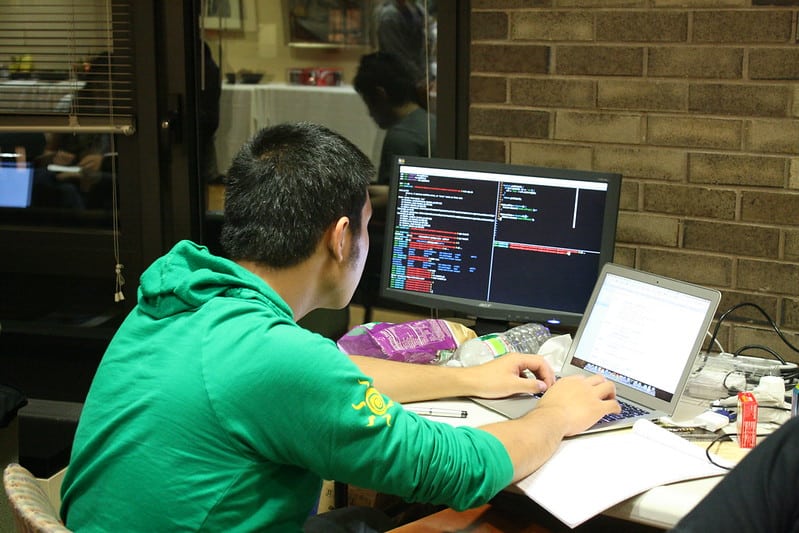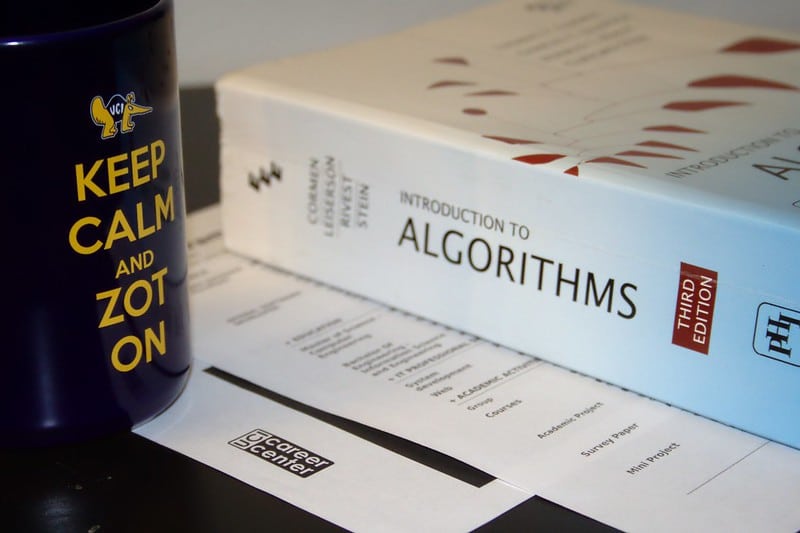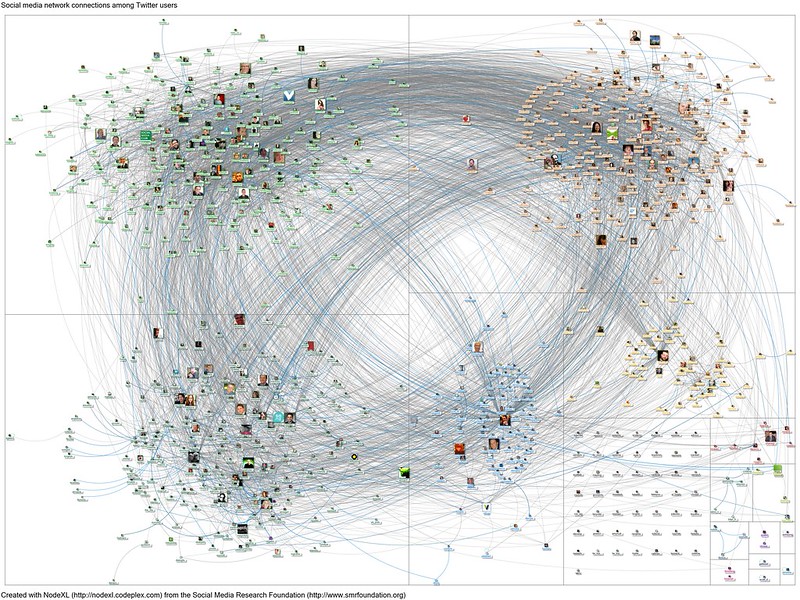
On completing my first ever job hunt at the age of 33 – and the dangers of overrelying on one’s network
For how much I write on this blog about career development and job-hunting in Japan, you’d think I’m a job-hunting expert.
Guess what, this is the coming-out post. I’ve actually never formally “job-hunted” — not even in Japan. Until recently, that is, after moving back to Singapore.
So, I just signed a contract a few days ago. The five-month process took longer than I’d hoped, but in the end, I got a better offer than I expected. Overall, though, it’s been quite bruising. But in that bruising, I think I’ve grown far beyond where I was six months ago.
Before I enter my new job, I wanted to pen down some thoughts. Some of these may be exceedingly obvious to those of you used to “job-hunting,” but hopefully, this will benefit anyone just starting out—especially people like me who are late to the game.
The background

Disclaimer: Not me. Desk may or may not be as messy as my own.
“Fall 2011 Student Hackathon Coding” by hackNY is licensed under CC BY-SA 2.0.
So, why now? At the age of 33, have I been unemployed this whole time?
Nope. I got a job straight out of college. The key is that until recently, I had never formally applied for jobs through typical job applications.
First job? Through an internship, which was itself through an introduction from someone already interning.
Second job? Through a contact from a separate internship—again, via a connection.
Freelance work? Have never (had to) bid, and wasn’t on freelancing sites like Fiverr or Crowdworks. Only by introduction.
You can see that my network (to be exact, my network in Japan) was my strength—which I milked to no end. And for all intents and purposes, it worked! Never had to waste money on a Recruit Suit, nor prepare my resume.
Why job hunt now?
So if everything worked out, why bother job hunting? Wouldn’t my network be enough to land me somewhere?
It would—if I were still in Japan and looking for something. But unfortunately, Japan, like many places in the world, has soured a bit on hiring people who are fully remote. And for me, the first priority was to find somewhere (1) in Singapore and (2) beyond early-stage startups.
My network was (and still is) weaker in Singapore. For bigger companies, referrals are a plus—but only as part of a more rigid hiring process. You can see why I was basically aiming at an angle where my previous strength—my largely Japan-based network—had little leverage.
Painful first steps

Not unlike me when I first started – with many many falls to come of course.
“5/31/2011 (267/365) – Baby Steps” by Fire At Will [Photography] is licensed under CC BY-SA 2.0.
I confess to starting my job search woefully optimistic.
I came in with the mentality of Japan—where even now, for every job-hunting IT engineer, there are four open jobs. Because of that, I expected myself—as a “decent engineer”—to be able to get a “decent job” with only “decent effort.” After all, graduates from coding bootcamps still get jobs, and given my experience, I’m better than them… right?
Not so fast—and definitely not so in the English-speaking world.
The first few rejections weren’t too painful. Rejection is normal, after all—something I often say when lecturing. But when you get more than 15 rejections in a row—at the document screening stage, and without feedback—questions start to creep in.
How am I supposed to improve if I’m talking to a wall? Is my experience even enough? With so many laid-off FAANG engineers around, why would someone hire me?
Another whammy came when I was dropped at a second-to-last stage take-home assignment I’d poured my weekend into. “Their code is really hard to follow,” it said.
The sense of being naked—and pain. The kind of sharp pain that only happens when you’ve never felt it before.
From theory to practice

“Job Hunt” by Bram P is licensed under CC BY 2.0.
It pains me to say I made the very mistakes I warn against in my lectures—like writing what I wanted to write in my resume, instead of what people want to see.
It’s great to give objective advice, but we all have huge blind spots when it comes to ourselves.
Also, my front-end heavy, startup experience meant that systems design interviews were a huge weakness. “Scale” really isn’t the priority when you’re in organizations focused on just getting the plane off the ground.
Now, the fact that I’m writing this means it went well in the end. But this involved:
- Completely overhauling my resume with the help of my partner (who has tech hiring experience)
- Four straight months of nothing but tech tutorials in my earphones, be it on transport, at the gym
- Pestering my partner to tutor me in systems design
- Still mucking up systems design interviews
- Multiple “did I just say that?” moments during interviews—and not the good kind
- Moping around after rejections
- Impotent rage when after receiving a verbal offer, had it rescinded due to an admin error
- Leetcode (sheeeeeesh)
Before this, I probably would have looked at all of this with revulsion. “Jumping through hoops for the sake of jumping through hoops,” I would have said. But the funny thing is—as I got better at jumping through hoops, I started feeling like I was becoming a better engineer—with broader considerations and a deeper understanding of tradeoffs.
And yes, even Leetcode can teach you something.
If I could do it over…
Speaking of learnings, I guess this is where I should jot down what I’d do differently. And maybe it’ll help someone reading this too.
Job hunting is important as an objective gauge
In my lectures on job-hunting in Japan, I often talk about side doors and back doors—how they help level the playing field for foreign students and can springboard someone’s career.
But the front door—applying for a job through the regular process—is important too. Because it gives you a clear gauge of where in the market you can compete, fair and square. And not just that—but also what needs to be done to move to the next stage in your career.
Having skipped this for most of my career, I ended up with a skill set that—though I’m proud of it—was overspecialized to a particular context. This job hunt helped “correct” my path, so to speak. And I should have done it earlier.
“Network” being dangerous as a crutch

Powerful, but not to be overrelied on.
“20111214-NodeXL-Twitter-jowyang network graph no jowyang edges” by Marc_Smith is licensed under CC BY 2.0.
I may have sneered at “jumping through hoops,” but that was really me making excuses to stay in my comfort zone.
To be fair, someone’s network is absolutely a leverageable asset. But overreliance on it means risking a crash when that support disappears—as it did for me.
Maybe if I were in sales or biz dev, this would be less of a problem. But in a hard-skills sector like mine, being too dependent on a “network” can mean shielding yourself from healthy competition—and missing chances to grow.
Job hunting is much worse as an island
I’m lucky that my partner not only supported me, but happened to be in just the right kind of role to give advice on how to job-hunt better.
Honestly, without that help, the search would probably have stretched beyond six months—and included a lot more moping. Alone.
As I said before, we often understand things objectively but lose sight when applying them to ourselves. Rewriting my resume with his guidance probably bumped my screening pass rate from near 0% to maybe 5%. And that was enough to snowball into the offer I have now.
Wrapping up
This is quite different from the “objective, pure advice” kind of post I usually write here. I might be exposing myself as a job-hunting fraud (at least in Japan), but I wanted to share something a bit more personal this time.
“What doesn’t kill you makes you stronger,” as the saying goes. While cliché, it certainly applied to me. Probably should’ve tried getting killed earlier.
The path I’ve taken is quite an odd one, so I’m not sure how much value this has—but if someone reads this and feels encouraged, or takes away even one idea, I’m happy.
I’ll close by saying that it is tantamount in one’s career to know your market value. But without going to the market, you can develop a very distorted view—on both sides. So, job hunt! Sometimes the grass is greener on the other side! Get shot down.
And crawl back up better after.

1 Comment
by Billy Lasido
Interesting how different our paths can be. In my case, I’m in biz dev, and the only roles I landed through pure network were internships. My second full-time job came via a headhunter and required a GMAT test. The first and third were through direct applications that involved business case assessments. As for the fourth and fifth roles, those came about through company acquisitions—basically, I had to prove myself to new leadership through business project evaluations before they decided to keep me on.
What I’ve learned is this: networks and references definitely help in the long run, especially if you’ve left a solid impression through your work. But when it comes to actually getting the offer? It’s your hard skills that seal the deal. Even now, a few clients have approached me with offers—not because we’re buddies, but because they saw the results I delivered and respected how I handled things.